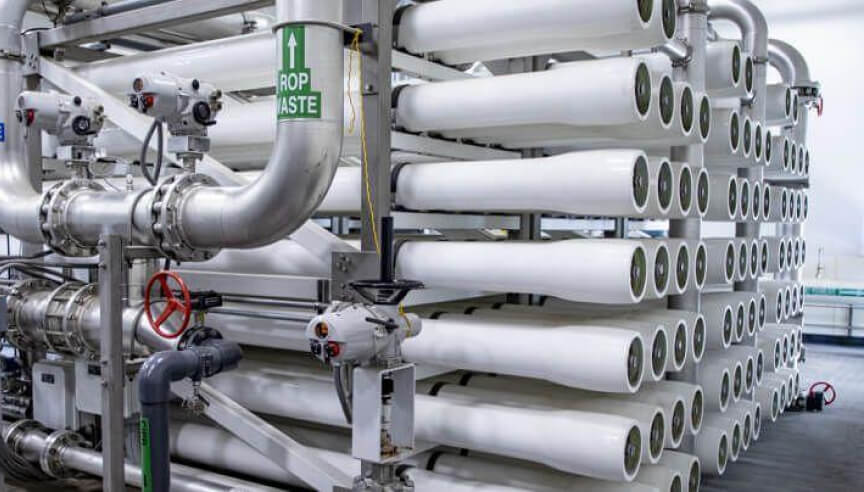Recent Posts
Applications of Membrane Water Purification

Top 5 Most Popular Applications of Membrane Water Purification in the Middle East
The Middle East, with its arid climate and limited freshwater resources, has become a focal point for the adoption of advanced water purification technologies. Membrane water purification systems, known for their efficiency and reliability, are extensively used across various sectors in the region. Here are the top five most popular applications of membrane water purification in the Middle East:
1. Desalination for Potable Water
Overview
Desalination is the process of removing salts and other impurities from seawater or brackish water to produce fresh, potable water. The Middle East, particularly the Gulf Cooperation Council (GCC) countries, relies heavily on desalination to meet its water needs.
Applications
- Municipal Water Supply:
Desalination plants using reverse osmosis (RO) membranes provide a significant portion of the drinking water in countries like Saudi Arabia, the UAE, and Kuwait. - Industrial Use:
Industries require large volumes of fresh water for operations, which is often supplied through desalination processes.
Benefits
- Reliable Freshwater Source:
Ensures a continuous supply of potable water in regions with scarce natural freshwater resources. - High Efficiency:
Modern RO membranes offer high salt rejection rates and energy efficiency.
2. Wastewater Treatment and Reuse
Overview
Treating and reusing wastewater is critical for sustainable water management in the Middle East. Membrane bioreactors (MBRs) and other membrane technologies play a crucial role in this process.
Applications
- Urban Wastewater Treatment:
Cities like Dubai and Riyadh use MBRs to treat municipal wastewater, which is then reused for irrigation and industrial purposes. - Industrial Wastewater Treatment:
Factories and refineries treat their wastewater using ultrafiltration (UF) and nanofiltration (NF) membranes to meet regulatory standards and reduce environmental impact.
Benefits
- Water Conservation:
Reduces the demand for freshwater by enabling the reuse of treated wastewater. - Environmental Protection:
Minimizes the discharge of pollutants into the environment.
3. Agricultural Irrigation
Overview
Agriculture consumes a significant amount of water in the Middle East. Membrane filtration systems are increasingly used to provide high-quality irrigation water from various sources, including treated wastewater and brackish water.
Applications
- Irrigation of Crops:
Advanced filtration ensures that water used for irrigation is free from harmful contaminants, supporting healthy crop growth. - Greenhouse Farming:
In controlled environments, membrane-treated water helps maintain optimal growing conditions for high-value crops.
Benefits
- Enhanced Crop Yield:
Provides clean water, free of pathogens and salts, promoting better crop growth and productivity. - Sustainable Practices:
Supports sustainable agriculture by utilizing treated wastewater and reducing reliance on limited freshwater resources.
4. Industrial Process Water
Overview
Industries in the Middle East, such as petrochemicals, power generation, and manufacturing, require high-purity water for their processes. Membrane technologies are employed to meet these stringent water quality requirements.
Applications
- Boiler Feed Water:
Reverse osmosis and deionization membranes are used to produce high-purity water necessary for boiler operations in power plants. - Cooling Systems:
Industrial cooling systems use membrane-treated water to prevent scaling and corrosion, ensuring efficient operation.
Benefits
- Operational Efficiency:
High-quality process water reduces equipment wear and tear, lowering maintenance costs and downtime. - Compliance with Standards:
Ensures compliance with stringent industrial water quality standards.
5. Bottled Water Production
Overview
The bottled water industry in the Middle East has grown rapidly, driven by the demand for safe and high-quality drinking water. Membrane filtration systems are essential in producing bottled water that meets international quality standards.
Applications
- Bottled Water Plants:
Utilize ultrafiltration, nanofiltration, and reverse osmosis membranes to remove contaminants and ensure the purity of the water. - Mineral Water Production:
Specific membranes are used to retain beneficial minerals while removing impurities, producing high-quality mineral water.
Benefits
- High-Quality Product:
Ensures the production of safe, clean, and high-quality bottled water for consumers. - Market Demand:
Meets the growing consumer demand for reliable and safe drinking water options.
Conclusion
The Middle East’s reliance on membrane water purification technologies is a testament to the effectiveness and versatility of these systems in addressing the region’s unique water challenges. From desalination and wastewater treatment to agricultural irrigation and industrial processes, membrane technologies provide sustainable and reliable solutions for ensuring water security and quality across various sectors. As the region continues to grow and develop, the adoption and innovation in membrane water purification will play a critical role in its sustainable water management strategies.
